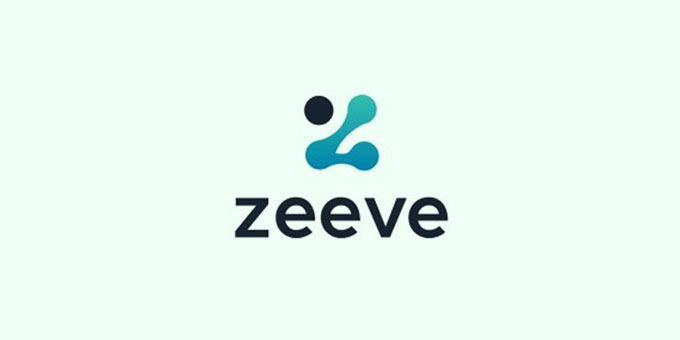The growing popularity of cryptocurrency has made crypto exchanges a highly demanding and feasible solution. Realizing this global growth, more enterprises are building their own crypto exchange platform to facilitate the exchange of cryptocurrencies. Building a reliable, scalable, and technically advanced crypto exchange is already a challenging task to accomplish. You need to create MVP, design an engaging user interface, perform necessary integration, test the product, deploy it, etc. Further, after the development is done, your crypto exchange needs to communicate with blockchain for the purpose of retrieving data existing outside the exchange’s ecosystem.
The interaction between your crypto exchange and blockchain can be easily enabled using APIs and RPC node endpoints. Therefore, Zeeve offers APIs suite and RPC nodes that help you to build a fully functioning crypto exchange and integrate the platform with use case-specific functionalities. In this regard, let’s understand how crypto exchanges can be built using APIs and nodes.
The vital role of Nodes and APIs in crypto exchange development
Cryptocurrency exchange owes the entire responsibility of operations to the exchange ecosystem. For example, it can be about facilitating crypto trading, fiat to crypto exchange and vice versa, matching ideal trades, aggregating liquidity, and simultaneously providing a highly secure exchange interface to users. But, as we discussed, communicating with the blockchain requires APIs and RPC node endpoints. Hence, let’s dive into the role of both these components in crypto exchange development:
RPC nodes

RPC (remote procedure calls) nodes are blockchain nodes that allow crypto exchanges to access RPC endpoints and connect with blockchain networks to perform various operations, such as requesting multiple RPC calls altogether and reading, writing, or retrieving the transactional data stored on the distributed ledger. Based on the requirements, crypto exchange developers can choose to run dedicated/full, light nodes, or archived RPC nodes.
APIs

APIs or Application programming interfaces in cryptocurrency exchange development are a set of protocols that connect the exchange to applications, platforms, and systems that are operating outside the exchange and request the needed information to perform operations on behalf of its users. APIs further define the parameters on which the exchange shares data and performs actions according to the end users’ requests.
People often use the terms nodes and APIs interchangeably, but these are different. APIs are the endpoints in RPC nodes that establish communication with the blockchain networks such as Polygon, Polkadot, Bitcoin, Ethereum, Binance Chain, etc. Further, by using APIs, exchanges can communicate with the nodes running inside the networks. Therefore, developers can use nodes or APIs corresponding to the requirements.
How to use Zeeve node infrastructure and APIs for crypto exchange development
Zeeve simplifies crypto exchange development by providing a robust node infrastructure to run RPC nodes and leverage indexed data APIs, allowing your exchange to communicate with the blockchain. Also, Zeeve allows you to set up API endpoints to make lightweight RPC calls for adding custom functionalities to the exchanges. Now that we are aware of Zeeve’s offerings let’s find out where to leverage Zeeve RPC nodes and APIs while building your crypto exchange:
Where to use Zeeve’s APIs Suite
Following are the areas in the crypto wallet development where Zeeve’s APIs- indexed data APIs and RPC API endpoints helps:
Getting crypto balance
Crypto exchanges need to fetch a list of all crypto tokens and the total balance available in the user’s wallet for various blockchain networks, it can be UTXO, EVM, and Cosmos-based networks. The details are then made visible to the users on the exchange’s interface. With indexed APIs, exchanges can access rich queryable data from the bulk synced data stored safely in the Zeeve database.
Adding support for various cryptos
Exchanges must allow the crypto investors to trade various currencies, which increases the feasibility of the crypto exchange platform. By Leveraging Zeeve APIs suite, you can make custom RPC calls to interact with desired blockchains and add multi-crypto support to your exchange. Use network-specific APIs to add support for BTC, ERC20, ERC721, CW721, PSP33, PSP37, CW1155, PSP22, and more.
Making Batch RPC calls
Crypto exchanges require to fetch data from a range of blockchains continually to keep the operations active. Zeeve’s legit data APIs (indexed APIs) allows your crypto exchange to interact with various blockchain networks and fetch necessary data. For this, you can make multiple RPC calls and request data as required.
Getting transaction status and history
Users on any crypto exchange demand end-to-end history and real-time details of their transaction. The indexed APIs at Zeeve are optimized to rapidly fetch real-time transactional data, either for the exchange happening with the exchange or outside it. The information helps the exchange to show exchange status to the investors- which can be pending or confirmed.
Allowing bulk exchange
Crypto exchanges allow investors to save time by using the bulk exchange feature. For this, Zeeve offers batch APIs to allow your exchange users to exchange bulk cryptos in one go. As this process requires multiple API calls, Zeeve’s RPC infrastructure is designed to handle the calls effortlessly.
Blockchain Events
Investors on crypto exchanges get instant notifications in case of deposit & withdraw crypto funds on their address. Through Zeeve APIs, these Blockchain events can be accomplished more effectively.
Where to use Zeeve’s RPC Nodes
RPC nodes have the ability to address the limitations of shared APIs and dedicated APIs that are used to establish communication between exchanges and blockchains. As we know, adding functionalities to the exchange such as wallet support, payment gateway, or multi-standard token support requires calling a range of API services. Doing these with the help of shared and dedicated APIs may create issues related to batch size, response time, call allocation, and concurrency issues. RPC nodes are a perfect way to overcome all these issues.
However, nodes’ infrastructure management for RPC nodes and DevOps still need to be simplified. Enterprises currently lack the sophisticated tools required to properly manage the node infrastructure. Knowing this, Zeeve offers a low-code deployment of your RPC nodes so that you don’t need to undergo the time-taking process of studying blockchain, arranging hardware requirements, compliance aspects, and most importantly, the security of your node as doing the manual node setup cannot guarantee all-round security often. The setup can take weeks to complete.
With a few clicks, you can leverage the standard Zeeve node deployment stack to deploy your node and make a custom setup while keeping security node standards in place. Once the node starts running, you can use its RPC node endpoints with your crypto exchange to interact with other exchanges and blockchain networks to change/add functionalities to your crypto exchange.
We have already discussed the role of RPC API earlier in this guide. These are alternatives to running your own RPC nodes. Zeeve allows you to set up and access RPC API endpoints with Zeeve to make RPC calls and fetch necessary data.
Why choose Zeeve as your Node Infrastructure and APIs Provider
Standardized deployment
Zeeve specializes in standard blockchain node deployment. Our highly optimized node infrastructure platform ensures that your RPC nodes are deployed with standards and security compliance in place. We further offer a range of node deployment and management solutions on Zeeve managed cloud that helps you deploy and configure nodes for Layer 1 and Layer 2 blockchains.
Proactive 24*7 Monitoring
Zeeve’s node deployment platform is integrated with advanced monitoring features that allow you to do monitoring of your RPC nodes. You can access two main kinds of metrics; system and blockchain. Under system metrics, the platform captures metrics like CPU usage, RAM, Disk, and network usage. Blockchain metrics provide insight into what’s happening on the blockchain level. Hence, you can capture the data about block height, RPC connection, RPC success/failure, peer count, etc. Such detailed metrics are hard to capture when managing the node manually.
Globally Recognized service
Zeeve achieves ISO, SOC 2 Type II, and GDPR Compliance standard, allowing crypto exchange companies to rely on a trusted node as a service provider that abides by the best-in-class NaaS standards. Additionally, the Zeeve platform maintains the sound health of your RPC nodes by alerting you about node-related issues beforehand so that the problems are addressed before the situation escalates. The support remains available to hear out and solve your concern round the clock.
High performance
We ensure the high performance of your nodes with consistent 24*7 monitoring, load balancing, and solving latencies. The faster performance of nodes in any platform, including crypto exchange, improves the performance, making the user experience more seamless and intuitive.
Enterprise grade infrastructure
Our enterprise-grade node infrastructure is designed to simplify node deployment and maintenance. Anyone, regardless of technical skills, can deploy nodes within a few clicks and start creating dApps with full customization.
Support to 40+ protocols
We support node deployment on all the prominent L1 and L2 blockchain networks, such as Algorand, Acala, Polygon, Polkadot, Ethereum, Cosmos, Stacks, Celo, DComm, Shardeum, and Binance Smart Chain. Our platform allows you to run dedicated/full, archived, and validator nodes.
Conclusion
Through this tech guide, we discussed several practical ways crypto exchange developers could use RPC nodes and indexed & RPC APIs. Before you go ahead and build your crypto exchange, make sure you do a thorough examination of the features and functionalities to utilize the APIs and nodes adequately. The team at Zeeve is always ready to hear your use-case-specific project requirements, assisting you in making your blockchain applications more feasible and relevant to the users.






















